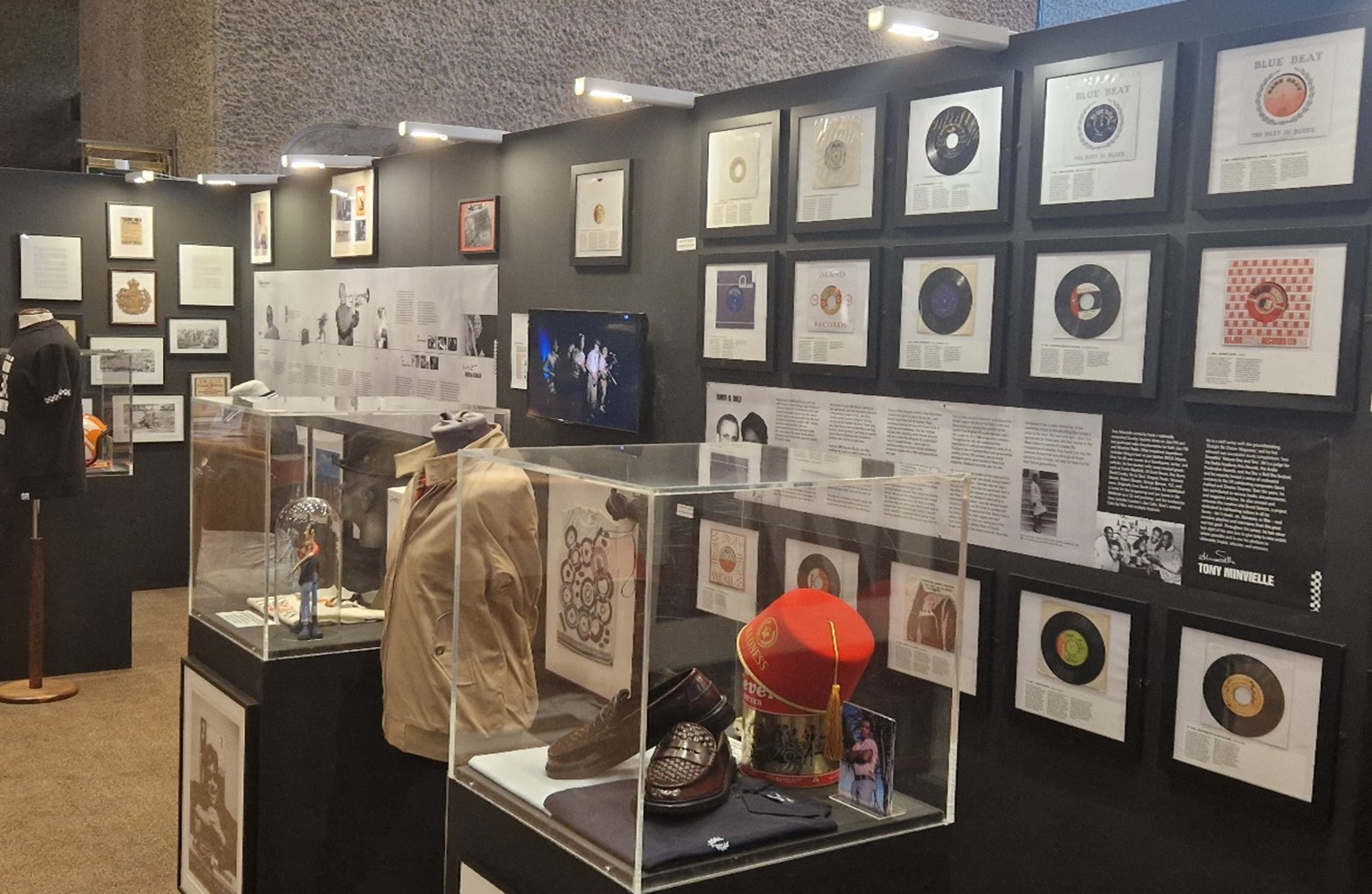Barbican Music Library’s current exhibition – From the Caribbean to Coventry: Plotting the Rise of Two Tone – is a celebration of one of the UK’s most influential musical and cultural movements. The exhibition was conceived by 2 Tone fans David Burke and Mark Baxter; they collaborated with consultants Rhoda Dakar (former lead singer of The Bodysnatchers), and broadcaster and DJ Tony Minvielle, both of whose stories are featured as examples of the enormous contributions to British culture made by immigrants from the Caribbean and their descendants. The exhibition’s narrative charts the development and journey of the music genre from France and Belgium during WWI, through to its heyday in Coventry in the late 1970s and early 1980s.
2 Tone music was a vibrant blend of Jamaican and British styles – particularly ska and punk rock – which was named after the independent record label, 2 Tone Records, created in 1979 by founder member of The Specials, Jerry Dammers. It gave rise to a movement which encompassed fashion as well as music, and its artists promoted a positive message of racial harmony and tolerance with many of the bands containing both Black and white members. Social issues were also highlighted, with songs such as ‘Ghost Town’ by The Specials describing the urban decay and unemployment which affected large parts of the country.
Although Coventry was the home of 2 Tone, the ska revival also took place in other regions leading to the formation of bands including The Beat in Birmingham, and Madness, who hailed from Camden Town, London. Other bands associated with the movement include The Selecter, Bad Manners, and The Bodysnatchers.
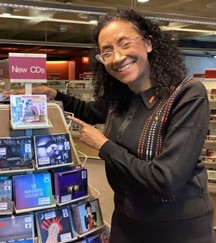

The exhibition contains books, vinyl discs, articles and memorabilia, as well as a selection of 2 Tone fashion loaned by the Modfather Clothing Company who also produced a bespoke t-shirt as a tie-in. Highlights include: a Trojan Records scooter helmet signed by members of The Specials; a gold disc awarded to Rhoda Dakar in recognition of extensive sales of the 2 Tone album, ‘Dance Craze’; and a handwritten letter from Jerry Dammers.
As the exhibition is on show in one of the UK’s most iconic Brutalist buildings, the Barbican Centre, photographer Andrew Ogilvy created new abstracted imagery to reflect Coventry’s contribution to this unique architectural style. A life-size cardboard figure of Walt Jabsco – an iconic image of 2 Tone created by Jerry Dammers and developed by John ‘Teflon’ Sims – greets people before they descend the stairs to the Music Library, and this has proved to be a popular backdrop for customers to take selfies!
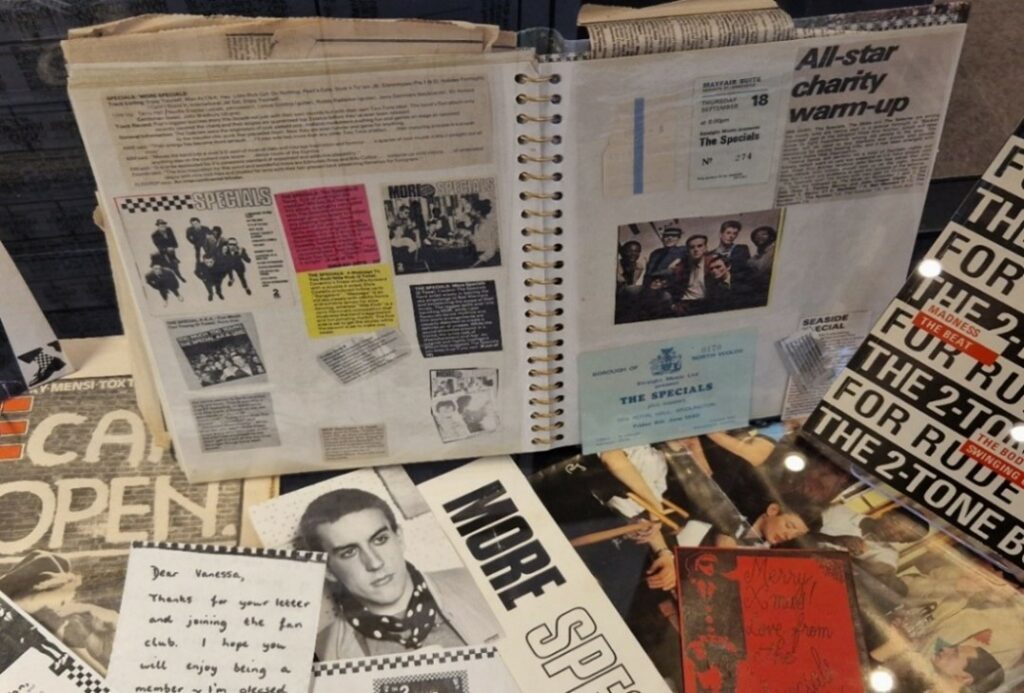
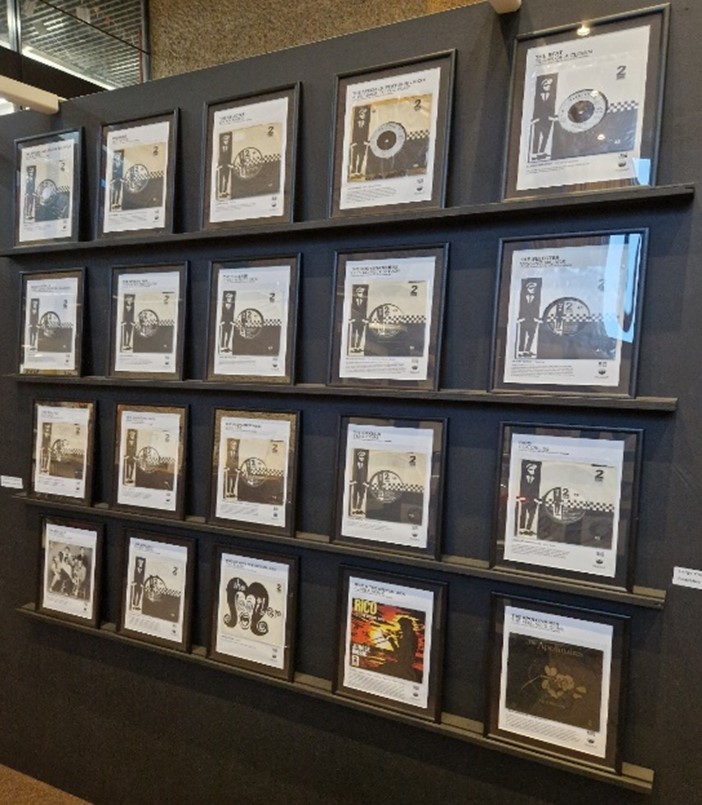
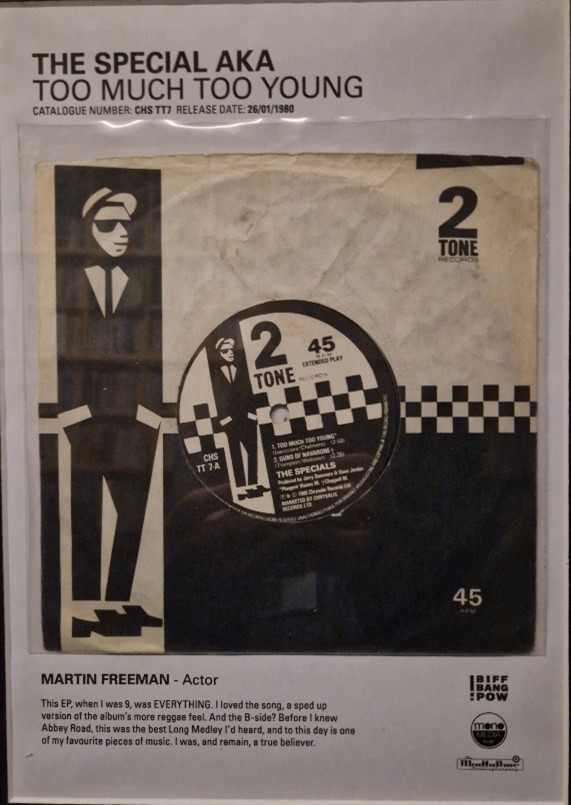
Described as “by the fans, for the fans”, the exhibition features contributions including photos and reminiscences from 2 Tone devotees around the world. A number of celebrity fans – including actor Martin Freeman, newsreader Clive Myrie, and Supergrass founding member Mick Quinn – were asked to ‘claim’ a single and write a few lines to accompany a display copy of their selection, thereby creating a wall of annotated 2 Tone favourites.
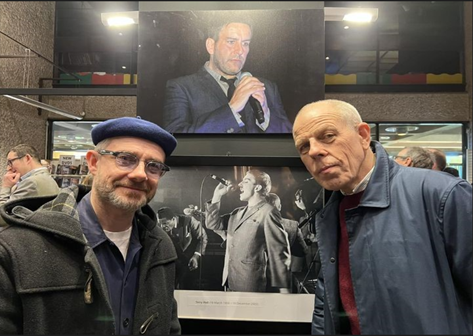
The legacy of 2 Tone and its lasting effect on British society is an important part of the exhibition. Mark Baxter said,
“Rather than just looking back, we also wanted to get across how Two Tone influenced people in their lives since its heyday” and, according to co-curator David Burke, “If 2 Tone had only bequeathed us the legacy of kids of all classes and colours wanting to live a life with meaning then I’ll take that all day and all night.”
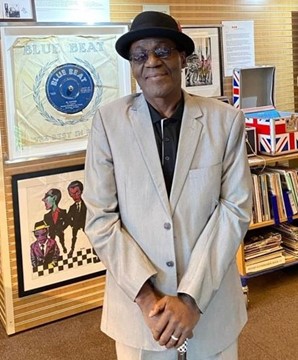
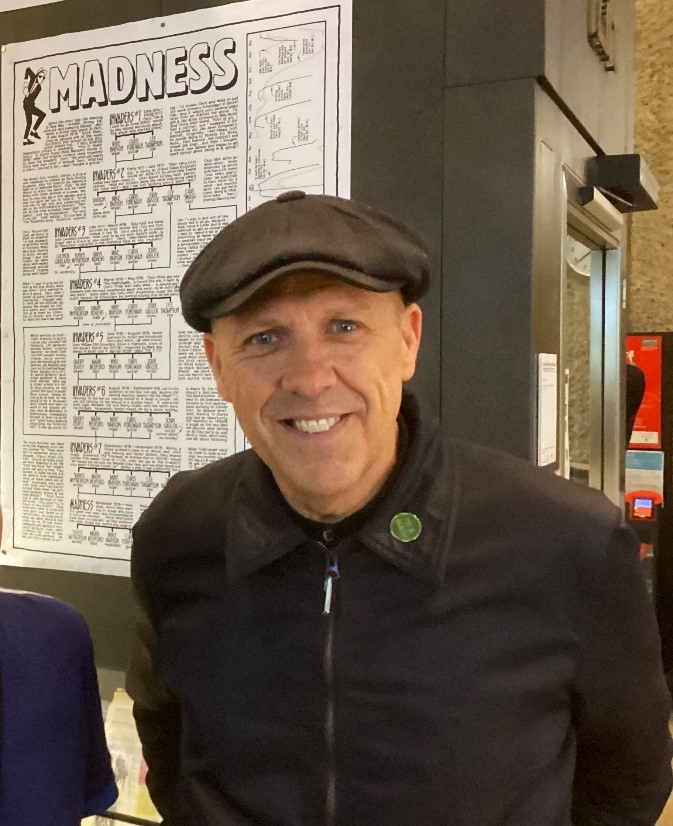
I want to express my sincerest thanks to Mark Baxter and David Burke for approaching us with such an exciting exhibition proposal and for bringing their vision to fruition, and to Rhoda Dakar and Tony Minvielle for acting as consultants and contributing their fascinating stories. I am also grateful to the Music Library team for their work on the exhibition, with a special mention for Michael Southwell who led on this project for the library. We are delighted that a number of the featured artists have taken the time to visit the exhibition, as shown in the images above.
The exhibition runs until Saturday, May 25th.
Richard L. Jones (Music Librarian, Barbican Music Library)
